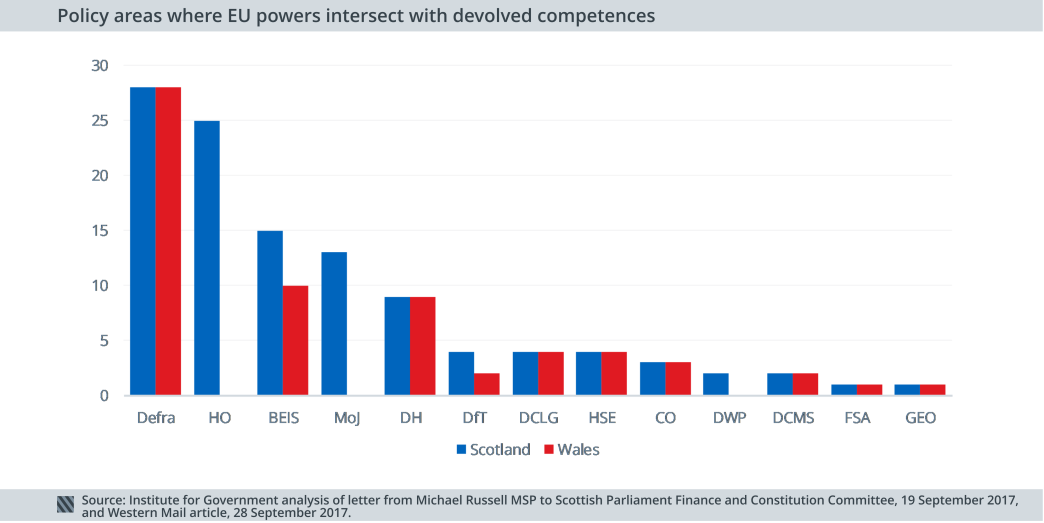At the first official meeting of the Joint Ministerial Committee on Brexit in eight months, some progress was finally made. Akash Paun hopes this is more than another false dawn.
Since June 2016, the Institute for Government has urged the UK and devolved governments to seek consensus on the terms of Brexit and on resultant changes to the UK’s internal constitutional arrangements.
We have subsequently grown increasingly disappointed by and critical of the poor state of UK-devolved nation relations. Things have been particularly strained since the publication in July of the EU Withdrawal Bill, which the Scottish and Welsh Governments describe as a ‘power grab’ by Westminster and that they will seek to block it through the Sewel Convention.
Finally, some evidence of progress
Once we leave the EU, each nation of the UK will be free under the existing devolution legislation to follow very different policies in areas including their support for agriculture, state aid for industry, public procurement, environmental standards, management of radioactive waste, rail franchising and more. These are areas that are devolved in theory but constrained in practice by EU law.
In total, there are 111 policy areas where EU law and devolved competences intersect in Scotland, 64 in Wales and an estimated 140 in Northern Ireland.
So the focus of this week’s meeting between First Secretary of State Damian Green, other UK ministers and representatives of the devolved governments was on the creation of new ‘common frameworks’ to replace the EU laws that will soon cease to apply. These frameworks will be laws or agreements between governments about how to coordinate or align policy after Brexit.
At yesterday’s meeting, the four governments reached a potentially significant agreement on the general principles for and definitions of these new frameworks.

Six reasons for new frameworks
To limit the potential for policy divergence in these areas, the UK government has consistently argued that new frameworks will be needed to fill the gap left by EU law. At yesterday’s meeting, ministers agreed on six reasons for new frameworks:
- to protect the functioning of the UK internal market
- to ensure the UK can meet international obligations
- to enable the UK to strike new trade deals
- to manage common resources like fisheries
- to ensure effective cross-border cooperation on justice
- to safeguard national security
There is also a commitment that the devolved institutions will retain at least the same level of policy autonomy that they currently enjoy in any particular area, and that overall there will be ‘a significant increase in decision-making powers for the devolved administrations’. A still vaguer clause commits them to close intergovernmental working on non-devolved matters that will impact upon devolved issues, such as trade policy.
Both sides made some important concessions
The devolved governments agree that where national economic, diplomatic or security interests are at stake, they will cooperate to create new UK-wide frameworks. And the UK government commits that the overall impact of Brexit will be an enhancement of devolved power.
Clearly, however, the devil will lie in the detail.
Agreement on principles is a start, but the hard work must now commence to establish how the different principles should be interpreted in each of the 100+ policy areas in question. The big sticking point may be less where frameworks of some kind are needed, but to what extent these new arrangements should be created via legislation at Westminster as opposed to less binding intergovernmental agreements.
The UK government is likely to favour the former and the Scots and Welsh the latter.
Having finally resurrected the dormant intergovernmental machinery, it is to be hoped that yesterday marks a genuine reset of the UK-devolved relationship rather than another false dawn.
Find out more about Brexit, devolution and common frameworks in our explainer.
- Topic
- Brexit Devolution